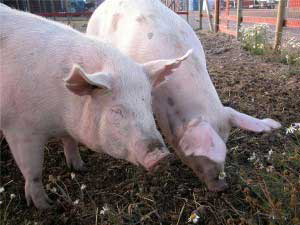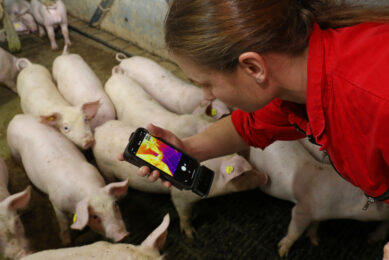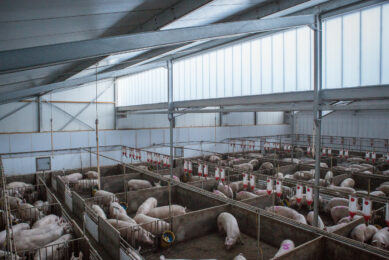Research on tackling aggression in pigs gets funding

Research into how to reduce pig aggression, improve welfare and the economic benefits for farmers has received funding in the region of €703,132.
The research team from Scotland’s Rural College (SRUC) are looking at how pigs fight, specifically how they settle contests on first meeting. The Biotechnology and Biological Sciences Research Council (BBSRC) have funded the project to help try to decrease this persistent problem.
Pig aggression is difficult to tackle and can cause major reduction in growth rates. Fighting among animals increases significantly when they are mixed in unfamiliar groups. Mixing occurs a number of times throughout a pig’s life and is often necessary due to economic constraints facing farmers.
Simon Turner, SRUC Senior Researcher who is leading the project, says: “Pigs are going to be mixed over the course of their lives a number of times. Changing that is just not practical so over the years researchers have tried to change the pigs’ environment, adapting it so they will react less aggressively when mixed. However these changes, such as adding straw, mixing the animals at night and tranquilising them, have not worked in the long-term.”
“Humans are able to assess both their own fighting abilities, and those of their attacker,” Simon says. “There is evidence that some species can do one or the other, but not both. We know little about how pigs make decisions on who to fight and when to give up, but this knowledge will probably prove to be essential in designing management systems that are effective in reducing the welfare and economic costs of aggression.”
Areas of investigation include whether mixing pigs at a younger age could reduce their aggression when mixed later in life. In separate work, the researchers will also explore how much a pig’s genetics play in how aggressive they are and whether selective breeding could help address the issue.
[Source: Scotland’s Rural College]











